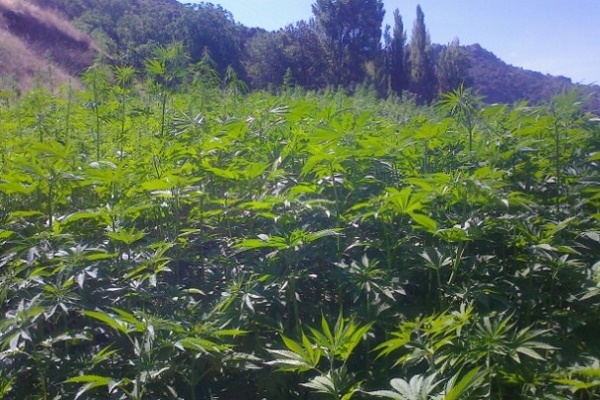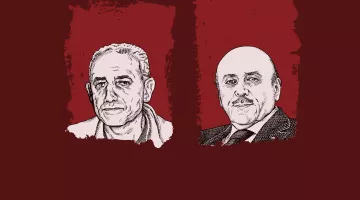Hemp for victory!
The versatile but sometimes maligned crop is making a comeback across Europe


The versatile but sometimes maligned crop is making a comeback across Europe
“If you smoke this, the only thing that you would get is a big headache”, laughs Fernando Montero, president of the Spanish Association of Hemp Producers. Indeed, the hemp he grows not only is lawful but also partly funded by the European Union. Carrying it is as legal as transporting daffodils, but Montero often has problems with police because the plants are mistaken for illegal cannabis. “Transporting, possessing or growing it could lead to the confiscation,” laments the Spanish farmer.
In a country where marijuana consumption is illegal it is weird to see acres of green crops that smell and look exactly like the drug. But it seems that hemp’s time has come. After years of demonisation, the world is living a rebirth of this innocent crop.
In UK the ban on hemp cultivation, imposed in 1971 under the Misuse of Drugs Act, was finally overturned in 1993. Campaigners successfully argued that although industrial hemp was a variety of the cannabis plant, it could be grown as a legitimate crop.
This “sister” of cannabis, hemp has less than 0.2 content of THC (tetrahydrocannabinol), the active ingredient of marijuana. As Montero says, the only thing that you would get from smoking it is a head ache. People have found a million other uses to it since the ancient world, especially producing fabrics and paper. It is said that the sails of Colombus’s boats when he sailed to America in 1492 were made of hemp fibre.
In 1941, the most iconic of American industrialists, Henry Ford, produced a car whose frame was partially made of hemp and whose engine could be powered by hemp fuel. During World War II, it was so crucial to the military that farmers who grew it and their sons were exempted from military service. It was celebrated in a 1942 public information film, Hemp For Victory.
None of this stopped the US Government from banned it because it’s close association with marijuana. The Controlled Substances Act of 1970 explicitly outlawed cannabinoids. But after the success of industrial hemp policies in EU, and the legalisation of the crop in Canada, several states are now aiming to resume hemp farming.
Canada legalised hemp production in 1996 and licenses commercial production for those varieties of cannabis sativa. In contrast, hemp production in many European countries, notably France, has never been prohibited. In addition, the European Union provides incentives. The EU started subsidizing hemp in 1970, when it was still known as European Economic Community. In 1999/2000 this support was increased, and many farmers benefited from it.
Hemp pizza
“In Italy we have started to grow it again in 1998, thanks to the EU and the association of a few productors,” say Mario Catania, spokesperson of Italian company, Eletta Campana.
In the southern Italian region of Puglia one eat a delicious “cannabis pizza”, made with distinctive brownish dough. One of the biggest producers in Europe is based in the region. Among other varieties they produce hemp flour used in the regional cuisine for biscuits, bread and, of course, oil and pizza.
“Hemp seeds are very nutritious. They have a protein content close to 20 – 25 per cent, as well all essential amino acids. From cold pressing we can get oil for alimentary and cosmetic uses. If used regularly, it helps to boost your immune system and also to reduce your cholesterol”, says Catania.
Besides food, nowadays it is used in the paper, plastic, cosmetic and automobile sector. Even our houses in the future would be made by hemp as the housing sector has developed bio-bricks from hemp as well.
Many of these products were traditionally made of hemp but other industries took over the production during the years of decline. In Spain, it was never banned but its association with drugs made it unpopular. “Now it is a market that must be conquered again,” says Fernando Montero.





